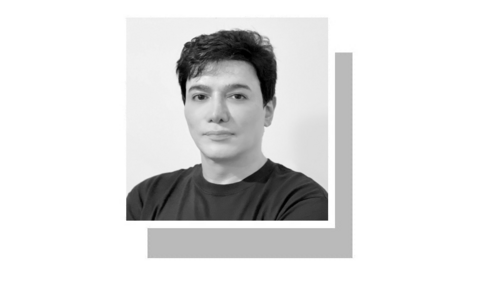When we first meet Fawad Khagga (Humayun Saeed), the heir to a rural landlord family in Punjab, the town is ecstatic about his accomplishment. After a 10-year dogged pursuit, Fawad is finally an M.A in political science. However, the degree he flashes in the air as he enters his haveli is a piece of wall-decoration. Fawad doesn’t need it. The certificate, though, tells you all you need to know about him: he is a man who loves to chase after things single-mindedly.
Like his alumnus status, his next object of fancy and conquest is Amal (Mehwish Hayat), the daughter of a close family friend and who has just returned from London with a bachelors degree in economics. Somewhat modern, Amal doesn’t like the “feudal” mindset of Fawad’s family, even when we see no sign of it in the film.
Contrary to her perception, the Khagga clan is a fairly domesticated lot with an open-minded, educated mom, a meek dad and a fun granddad with a penchant for mujras (Saba Hameed, Waseem Abbas and Sohail Ahmed — a hoot). In fact, they could pass off as any upper-middle class family.
Amal’s family lives in Karachi — giving credence to the film’s title — and is more traditional in their attitude. Their outmoded set of values are kept alive by their matriarch Bebo Jee, played by Naveed Shahzad. Bebo Jee’s keen-eyed life experience immediately senses the change in Amal’s independent point of view of the world, among other things, which will not be revealed here. She sums it up in one single moment in the film watching Amal, wearing a tank-top, shoot hoops. Noticing the spring in her step Bebo Jee ruminates, “(Kyun) uskay pair zameen par nahin.”
Punjab Nahi Jaungi has an infectious appeal. It may be the year’s best locally produced entertainer
In a way, Punjab Nahi Jaungi (PNJ) is as much about Amal’s wayward and intractable unconventionality as it is about Fawad’s bullheadedness. The contest is less about love — which miraculously happens to Fawad and Amal at different times in the film — and more about the stiff-necked pursuit of what they want.

Director Nadeem Baig (whose name’s spelling changes with every fact check) is on his home ground in this quite minimal and very drama-wrought setting. Nadeem, an ace of television (Pyare Afzal, Dolly Ki Aayegi Baraat) and the deliverer of the history-making Jawani Phir Nahi Ani (JPNA), is at his refined best here. While he does resort to conventions and staples with too Bollywood-ish music cues, or at times doesn’t build bridge-scenes between emotional moments, PNJ ups his directorial aesthetic from JPNA by a few notches.
The director gets great behind-the-camera support from his sound editor as well as cinematographer Suleman Razzaq. The pitch-perfect sound design and the glossy, properly lit camerawork help shift the film from its television drama-esque story structure from writer Khalil-ur-Rehman Qamar (I doubt he did the screenplay in the true sense of the word).
Qamar’s dialogues, however, are ear-catching as is the excellent soundtrack from a talented assortment of musicians (Shiraz Uppal, Sahir Ali Bagga, Shani Haider, Farhan Saeed and Damia, Rizwan and Ahmed Ali Butt). My slight reservation with PNJ is with its drama: its lack in the pre-intermission half and its relentlessness in the second half. I say ‘slight’ because the film’s uneven tone deliberately fluctuates between slapstick comedy and high-strung drama, and yet manages to be bang on the money.
In part, Nadeem nails this holy grail approach of comedy drama with the aid of authentic character-play from Humayun and Mehwish. Like Yin and Yang, Humayun’s comedy timing and his shortfalls as a person are a great contrast to Mehwish’s sombre, straight-laced, today’s-woman ideals. Both leads are excellently hypnotic, never once abandoning their character’s internal sense of conviction or their outward appearance, which includes everything from ‘neutral’ Punjabi accents to costume design.
As with most Pakistani movies, some characters are there for convenience. Ahmed Ali Butt, who plays Shafique Ahmed, Humayun’s tag-along friend, gets random screen-time and a few good scenes.
The scene-stealer, other than the leads, however is Urwa Hocane — Fawad Khagga’s scheming cousin Durdana — and chances are by now you have already heard the line, “Help me, Durdana.” If you haven’t, I won’t spoil it for you, even though it does form the crux of PNJ’s second half, and the chief reason why the film has excellent repeat value.
PNJ’s overall ambience has an infectious appeal which bamboozles one to rave about it, especially right after seeing it. It may be the year’s best locally produced entertainer, if not the only one.
Published in Dawn, ICON, September 10th, 2017















































Dear visitor, the comments section is undergoing an overhaul and will return soon.